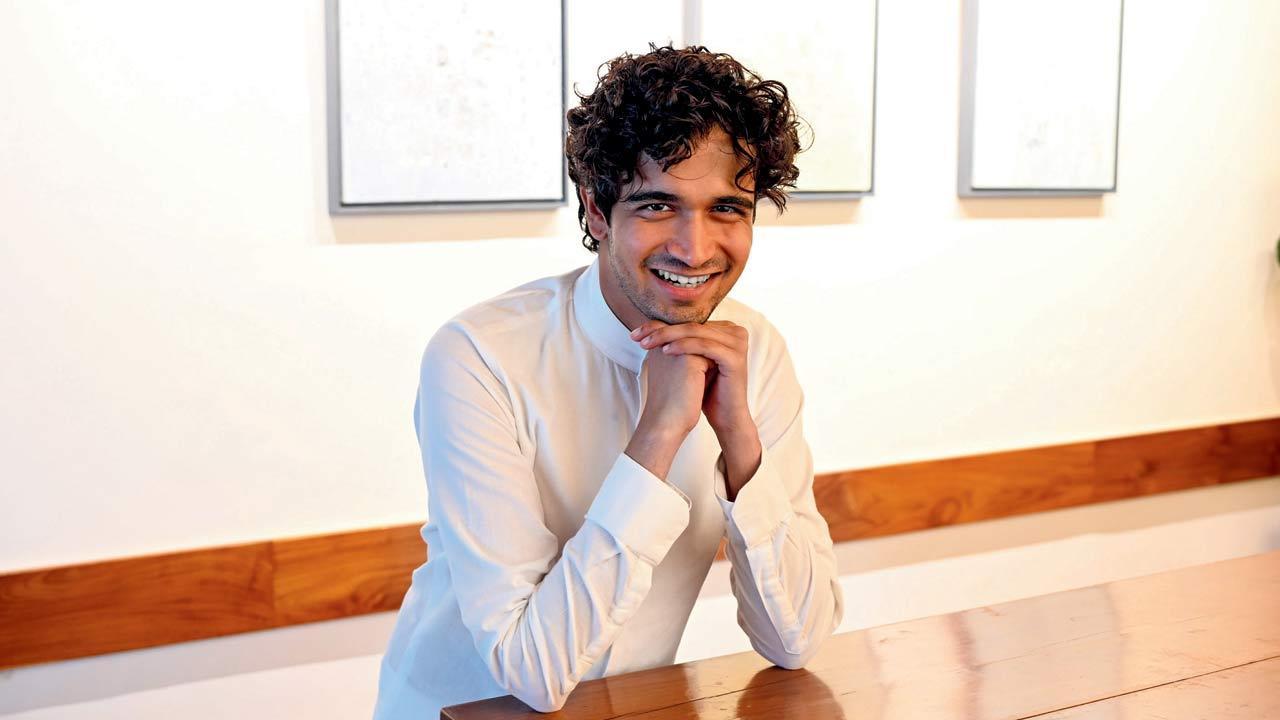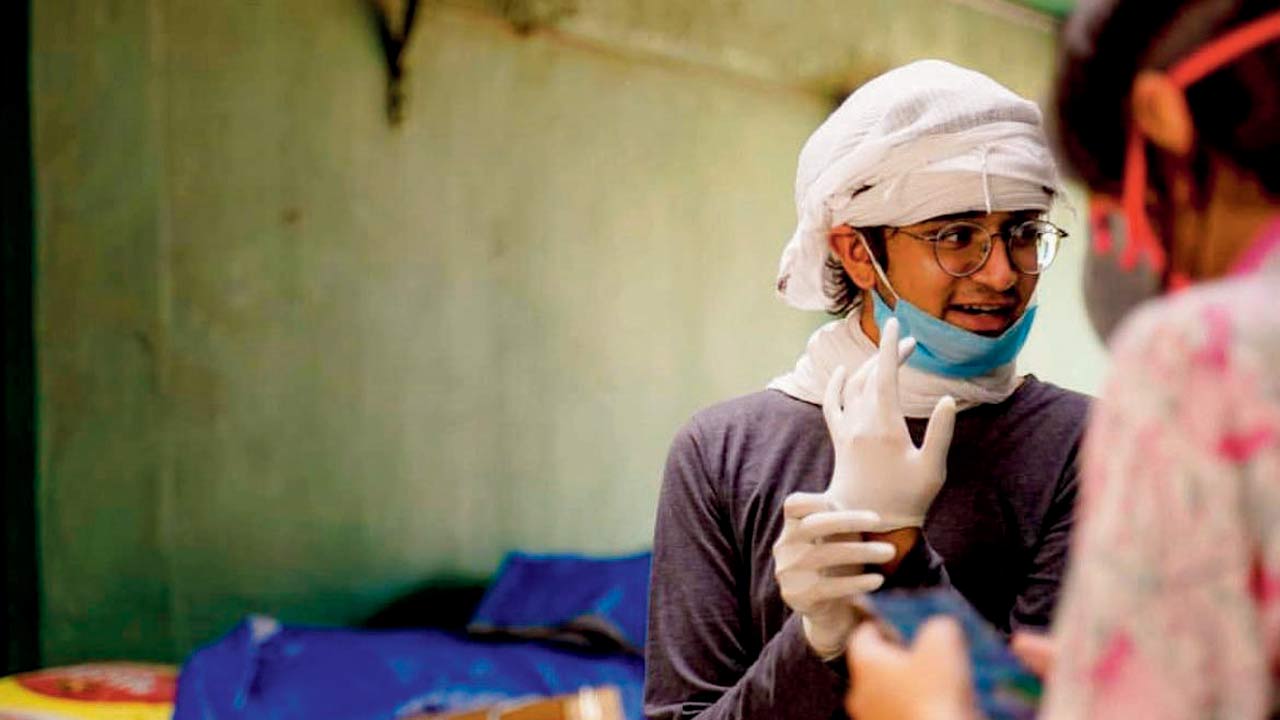An openly gay man steps into mainstream Maharashtra politics and argues in favour of crafting an alternative political imagination through investment in literature and the arts

“In many ways I’m crafting a new narrative of what a politician looks like,” Anish Gawande, dressed in cool whites offset by bold red socks, tells mid-day. The newly-appointed national spokesperson of the NCP (Sharadchandra Pawar) notes how “the role allows [him] to redefine what it means to be a politician, what it means to dress, and speak like one. That’s a transformative journey that one can embark upon when one is given a position of responsibility.” Pic/Kirti Surve Parade
We meet Anish Gawande at Method Bandra a day after the announcement by the Nationalist Congress Party (Sharadchandra Pawar) of his appointment as its national spokesperson. “An ideal space,” the curator, writer and Rhodes scholar says of the choice of the gallery-cum-cafe for our meeting.
ADVERTISEMENT
“To me, politics has always been intertwined with art and literature.” Gawande, 27, has degrees in comparative literature, intellectual history and public policy and is the director of the Dara Shikoh Fellowship, an interdisciplinary arts residency based in Jammu, Kashmir, and Ladakh.
He recalls a visit to Babasaheb Ambedkar’s house in Pune a few years ago when he was struck that what occupied pride of place in the living room was not a fancy dining table or a work of art, but a library. He believes the need of the hour is to craft an alternative political imagination, a task that has to be accomplished through an investment in literature, the humanities and the arts. “We are still figuring out what that alternative political imagination is. How do we readdress the issue of caste? How do we readdress the divisions created on the basis of religion that have fractured our society? How do we craft a new understanding of gender and sexuality politically? And how do we learn to navigate a world undergoing massive transitions? This demands serious thinking which you cannot do without reading. We need more politicians who read poetry and more poets entering politics.”
 During COVID, Gawande ran a community kitchen called the Bhiwandi Project, where they fed almost 6,000 people a day. Pic/Instagram
During COVID, Gawande ran a community kitchen called the Bhiwandi Project, where they fed almost 6,000 people a day. Pic/Instagram
Gawande speaks of a rhetoric of care that is missing in political discourse today. “I think ‘care’ is a word that’s been lost in politics amidst the upheavals that we’ve seen, amidst the focus on politics as a vehicle for power. We must recenter the conversation around why we believe in equality, secularism, why we believe in granting farm loan waivers to farmers.”
For him, the inspiration to pursue a career in public service came from home.
He speaks of his grandfather, who hailed from Yeola near Nashik, a professor of law who worked alongside Ambedkar during the drafting of the Constitution. “There’s a certain legacy of progressive values [in my family]. I’ve been constantly reminded that there is a need to serve.”
But not belonging to a political family meant the barriers to entry were many and even though he had the experience of working on now Shiv Sena MP Milind Deora’s campaigns for Congress in 2014 and 2018, he says he wasn’t convinced of his entry into politics. “This election cycle has been reassuring. Supriya Sule and Jayant Patil have been guiding forces and mentors. And they’ve proven to me for the first time that they’ll walk the talk.”
He speaks of meeting with the Baramati MP and her party’s National Working President, four years ago, when he had invited her for a conference at the Harvard College US-India Initiative on trans rights. Within a month, he says, she had set up a meeting with Maharashtra’s then deputy chief minister and helped set up a transgender welfare board in Maharashtra. “Knowing that you have leadership in a party that is open-minded and willing to engage is important. There was a certain way in which she inspired me to finally take the plunge”.
The presence of a political class that’s ready to tackle queerness is, he believes, what has made his selection possible. “The NCP-SP had the most progressive manifesto on LGBTQiA+ rights, an entire section that ranged from social security to shelter homes to reservation and marriage equality. It was the first party to launch a queer cell, and has a trans woman heading that department. There is a willingness to engage which makes a [career] move like mine possible,” says Gawande, who came out as gay in 2019, when he was 22. “That was only the beginning, though,” he is quick to warn. “The real struggle begins now. This is uncharted territory. How this manifests in the backlash I may face for my identity, I don’t know. There might be none or there might be a lot. What this means in terms of being pigeonholed only to queer causes and not being asked to speak on other issues is yet for me to find out.”
With the splintering of the NCP-SP from the Ajit Pawar-led NCP, which Gawande says “was aided and abetted by judicial and political moves that were unethical and also in my opinion, unconstitutional,” the party has been left in a precarious position. But it has shown that it could win eight out of 10 Lok Sabha seats, he argues. “No other national party has a strike rate that high, especially when contesting in a state as politically fragmented as Maharashtra. Only Pawar Saheb can make magic like this happen.”
The way forward, he believes, lies in expanding the party’s presence in urban areas, conveying its ideology to an English-speaking audience, targeting young people in Tier 1, 2 and 3, across Maharashtra and the country.
There’s a need, Gawande says, for a renewed conversation around what ‘Marathi asmita’ means. “The state was founded on Marathi pride but it unfortunately got mobilised and weaponized in a negative way. I see a resurgence of a more progressive form of Marathi asmita.
It’s why you had people across linguistic, religious and caste backgrounds participate in the Samyukta Maharashtra movement.” Since Mumbai is at the heart of this inclusive ideology, “it’s important to take the Mumbai model national.”
At a time when the crafting of a national narrative from the perspective of progressive values in the opposition is being evaluated, there is an opportunity, says Gawande, to showcase the Shahu-Phule-Ambedkar ideology. “We’re witnessing a peculiar moment in politics where the possibilities are endless and open. In this moment you will have the ability to enter the conversation more easily than you will once a new political imagination has been crafted. It’s this narrative that will fuel the country for the next 20 years.”
 Subscribe today by clicking the link and stay updated with the latest news!" Click here!
Subscribe today by clicking the link and stay updated with the latest news!" Click here!







